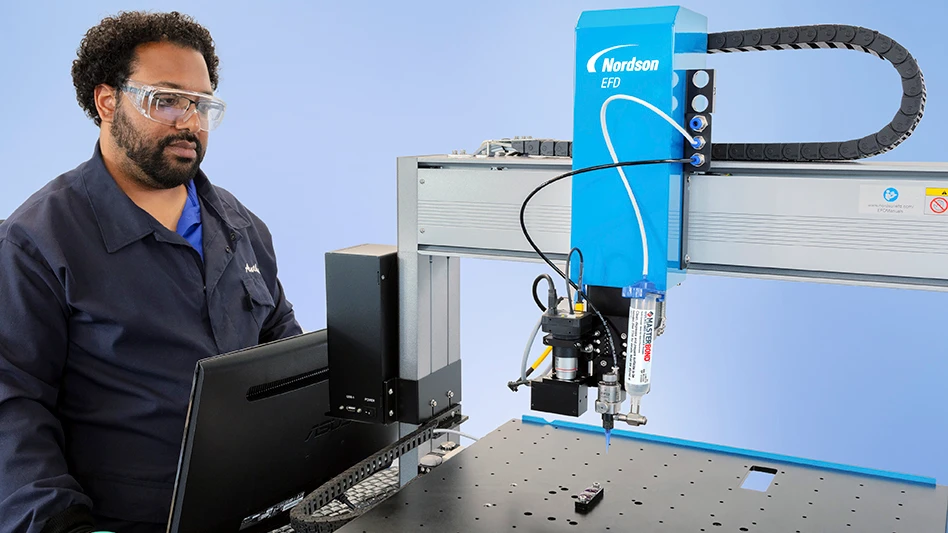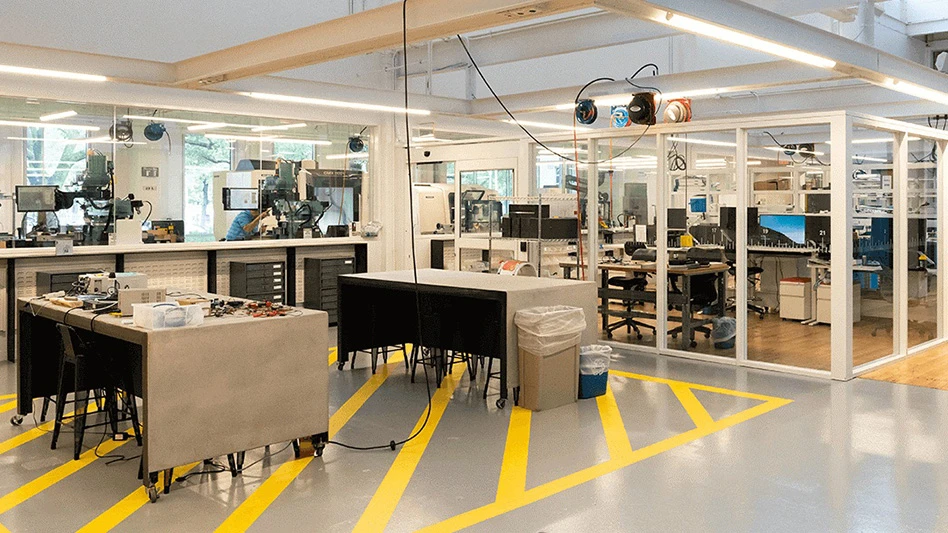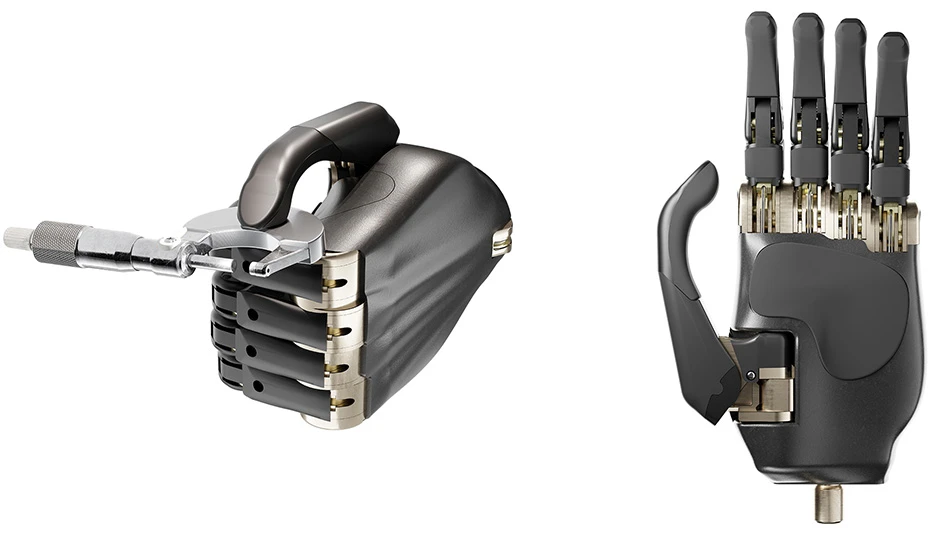
The Hong Kong Polytechnic University

Producing ultra-precise efficient finishes on freeform surfaces common in 3D imaging system lenses can be difficult. This challenge led a team of researchers at The Hong Kong Polytechnic University (PolyU) to develop a novel curvature-adaptive multi-jet polishing (MJP) technology.
Time efficiency and surface quality improvement are the main goals, and in addition to optics for automotive head-up displays or virtual reality systems, this technology can meet the stringent requirements for ultra-precision and high efficiency in polishing to reduce the surface roughness in high-value-added products, such as artificial joints, turbine blades, and other components with complex geometric shapes.
The technology is based on fluid jet polishing (FJP) which pumps a pre-mixed slurry through an adjustable nozzle that directs it toward a surface, polishing it to the desired finish.

PolyU’s research team customized multi-jet nozzles and developed a computerized system to automate the process and control fluid pressure and processing time of each jet according to the shape, curvature variation, and surface polishing requirements.
Like FJP, MJP is suitable for polishing complex surfaces and will not cause tool wear or increase workpiece temperature during polishing. MJP, however, can overcome limitations of FJP to improve material removal rates and efficiently polish large-scale, lens arrays and inner surfaces.
For validation, the FJP polishing procedure on a 4x4 lens array took about 320 minutes as each lens in the array was polished for 20 minutes.
Using the MJP tool took 20 minutes to simultaneously polish all the lenses.
Design and production cost of a PolyU MJP machine is about two-thirds the cost of the commercialized FJP machine, and the MJP system can be adapted and integrated into the existing polishing machines or robotic arms.
The research team plans to strengthen the technology by developing apparatus fit for plug-in 3D printers to enhance the efficiency of post-process finishing of complex 3D-printed components.
The Hong Kong Polytechnic University (PolyU)
https://www.polyu.edu.hk

Explore the July 2019 Issue
Check out more from this issue and find your next story to read.
Latest from Today's Medical Developments
- Syringe-less injector system for diagnostic imaging obtains fourth FDA clearance
- Hohenstein Medical debuts enhanced medical device testing capabilities
- Arterex unveils unified brand identity
- Dymax demonstrates light-curing material solutions for medical devices
- Able Medical Devices showcases latest sternal closure solutions
- TMTS 2026 explores AI-powered sustainable manufacturing and more
- QT9 QMS platform streamlines quality management, compliance for medical device manufacturers
- Spineology releases patient-specific expandable spinal implant





